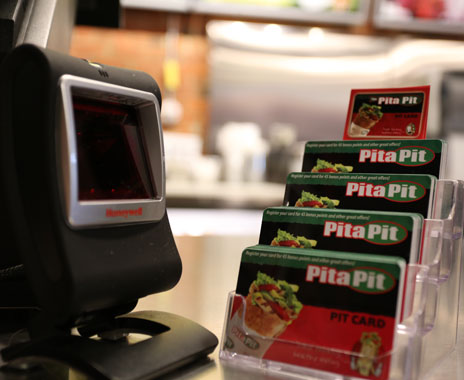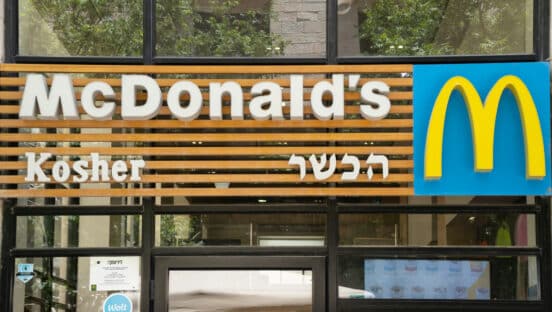Peter Riggs would bet on his franchisees and customers over the federal government any day. Thus, he’s happy to see more money going back to both after Congress and President Donald Trump ushered in sweeping tax reform in December.
“Anytime we can have a little bit more money to invest in our people, our business and our franchises over giving more money to the government, I’ll take that bet any day of the week,” says Riggs, Pita Pit USA President and CEO.
The bill, which Trump signed on December 22, will roll out $1.5 trillion worth of tax cuts. The change will benefit many individuals across tax brackets, but the largest benefits are reserved for the highest earners. Already, big American businesses like Wells Fargo and AT&T, citing their impending tax windfalls, have publicly rolled out employee bonuses and raises.
On January 24, Starbucks announced $250 million worth of investments the company said were “accelerated” by the tax law. Those included wage increases for all U.S. employees, a grant of company stock to workers, a new family stick time benefit and an expansion of the chain’s parental leave policy to include all non-birth parents. While Starbucks did not disclose its estimated savings from the tax changes, an analysis by Credit Suisse estimated the coffee giant could save $425 million per year, according to Reuters.
“Uniformly, we believe it will be positive,” says Cicely Simpson, executive vice president of public affairs at the National Restaurant Association, said of the tax code changes. “We are very pleased with where the rates ended up.”
Simpson noted that her organization has been lobbying Congress and the White House for months seeking tax reform and rate reductions. The ultimate bill signed by the president included many specific items important to NRA’s members, she says.
Many restaurant companies are still evaluating their tax situations. Thus, Simpson says, it’s too soon to predict how restaurants will deploy their newfound cash. But she says if history is any indication, the hospitality industry can expect a bump in consumer spending as individuals realize tax savings.
“That tends to benefit restaurants,” she says, “so certainly we believe as the tax rates and income brackets have now been set, we do believe consumers will be reinvesting and have discretionary income to spend at restaurants, retail and other outlets.”
Like many businesses, Pita Pit’s team is still examining the intricacies of the 429-page bill. But executives don’t expect to uncover any major hurdles in the mix.
“There are no big glaring issues where we say, ‘oh, this is going to be a real problem.’” Riggs says. “Even though there are cuts and some simplifications made to it, the tax code is still massively complicated legislation. So, I’m sure there are things lurking in there, but from a grand scheme, I think it’s going to be better.”
Riggs says he expects franchisees will use their tax savings to reinvest in their businesses, whether they choose to pay team members more or open a new unit.
“The reality is at a local restaurant in Bozeman, Montana, they’re going to have more money to hire more people, to put into sponsoring Little League teams and things like that,” he says. “That’s what our franchisees do.”
Likewise, that storeowner in Bozeman should benefit from the tax savings reaped by consumers, Riggs says.
“There should be a general increase of available funds for people to spend out doing things,” he says. “And because the economy is clicking along right now, people aren’t as afraid as they were 10 years ago. They’re not squirreling away money saying, ‘I’m not sure what’s going to happen next.’”
While tax policy is inherently complicated, the tax bill plainly delivers on the straightforward objective of lowering tax rates.
“The biggest deal is that there’s a dramatic cut in the corporate tax rate. For bigger companies, their top rates are going to go from 35 percent to 21 percent. That’s a huge, huge tax cut,” says Jay Nathanson, an officer in the business service group and tax subgroup at law firm Greensfelder, Hemker & Gale, P.C. “To me, it’s a win-win for restaurants and a lot of businesses.”
Smaller companies, including LLCs, S Corporations and partnerships, will also benefit from overall rate reductions. Qualifying “pass-through” entities will enjoy a 20 percent deduction on qualified business expenses (with potential caps for some). About 90 percent of U.S. businesses are pass-through entities, in which income is reported on business owner tax returns, according to the Tax Foundation.
The law also calls for the IRS to increase its limit on how much businesses can deduct for new equipment purchases. Nathanson says that should help capital-intensive restaurants.
In his review of the law, Nathanson found a few potential pitfalls for restaurateurs, like the end of tax breaks for companies exchanging equipment as they purchase new items —those rules now only apply to real estate transfers. The IRS will also end its deductions for business entertaining, though deductions for business meals remain intact.
But those concessions are minor in comparison to the overall tax reductions: “All in all, I still think it’s very positive,” Nathanson says.
Yet, nothing about the tax changes is simple. Nathanson expects the process of tracking expenses and filing taxes will only grow more complicated for businesses who must now sort through the new rules.
“In my opinion, I don’t see a lot of tax simplification, but I think it’s still beneficial because the rates are going to be lower,” Nathanson says. “You probably need tax advice more than ever because you have a brand-new determinant.”
Companies that had previously mastered the ins and outs of the IRS and handled their taxes internally may need to seek external help now, Nathanson says. That may birth a cottage industry of tax experts and vendors looking to exploit the changes in tax code.
“I’ve already seen some people advertising that they’ve got new software,” Nathanson says. “Especially the little guy is going to be more reliant than ever on getting sophisticated tax and accounting advice. But I think they can get a bigger bang for their buck, because you’ve got this whole dimension of a 20 percent deduction. I mean it’s huge.”













